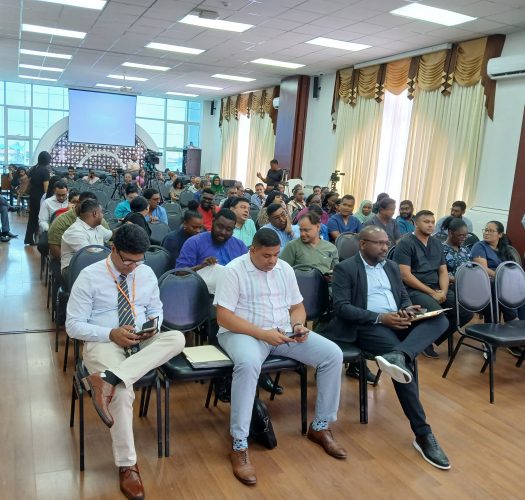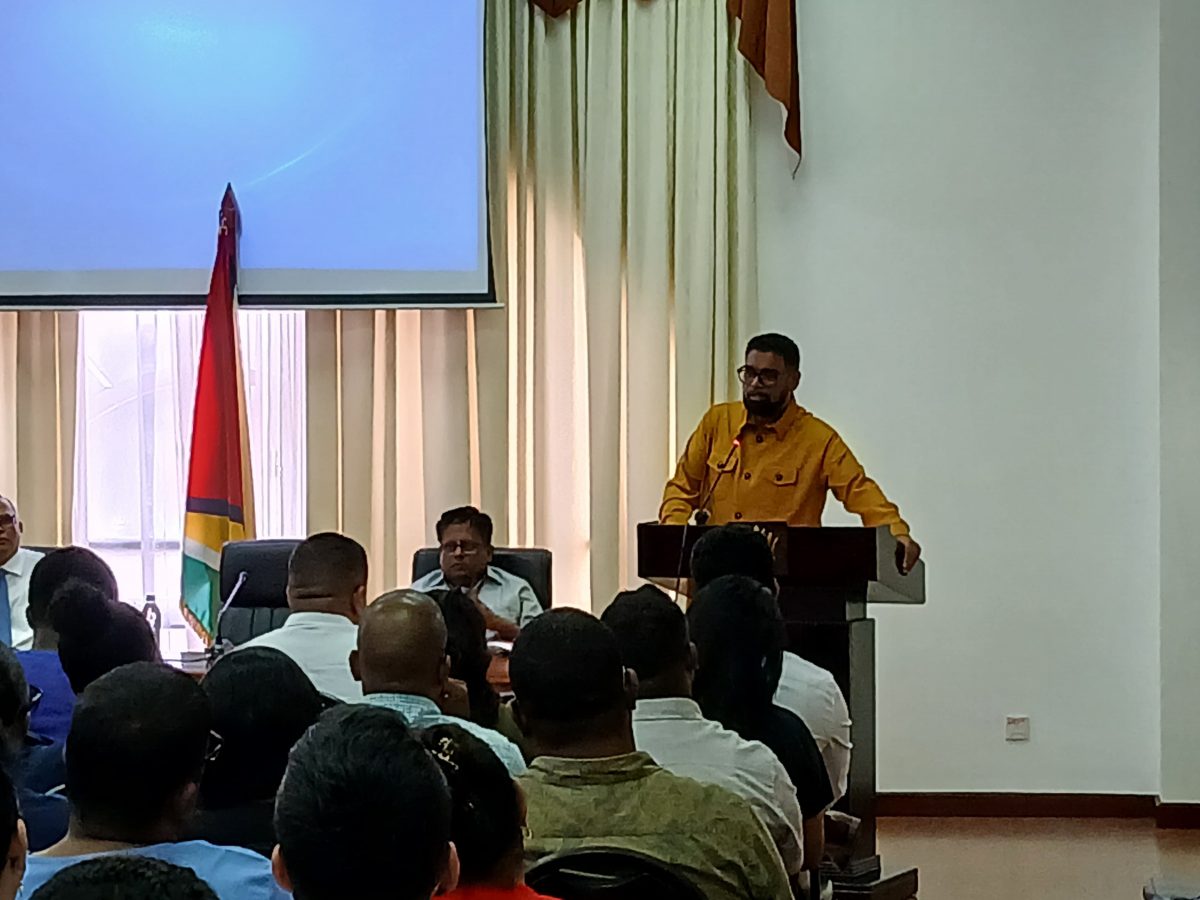The government is looking at establishing a customer service hotline for citizens who receive poor service at healthcare institutions and would like to file complaints. President Irfaan Ali made this disclosure yesterday during an engagement with healthcare professionals at the Arthur Chung Conference Centre, Liliendaal, Greater Georgetown.
“We are working on establishing a customer response mechanism. One of the things we’re thinking about is to have a call centre approach, where if our citizens go to a health clinic, or a hospital and they’re dissatisfied with the service then that citizen can easily… make a complaint, so that we can have a more professional treatment system more responsive to the needs of people,” he said.

President Ali also noted that as announced by Minister of Health Frank Anthony last November, the ministry was moving ahead with the citizen health information mobile app. He added that the Health Ministry, in partnership with other health care institutions, was engaging medical personnel in robust training. He said that as the administration was pushing for electronic services through the introduction of digital identification, this will also be incorporated into the healthcare sector for citizens to have efficient services.
While admitting that there is room for improvement as regards services at many healthcare institutions, the President said he did not intend to prevent medical doctors from working simultaneously in both private and public sectors. However, this must not hinder their efficiency in the delivery of care to the nation.
He urged healthcare professionals to guarantee that all patients seeking services in the public sector will access a minimum standard of service and that all backlogs of cases would be addressed in the shortest possible time.
“Which are the areas we have a specific backlog in? Which areas do you require us to bring in specialised people to clear the backlog?” Ali quizzed. “I want us to identify the areas of backlog and we are going to invest in clearing those backlogs, particularly in matters that concern women and children.
“I believe that we are making serious investments. When [we] make these investments, the population and the government expect that in a short period, we must be able to deliver efficient, reliable, and world-class services to our citizens. I firmly believe that our healthcare system must be developed to be the premier healthcare system in the region.”
The Head of State also said that while the government was fast-tracking developmental projects of regional hospitals, it was important for these healthcare institutions to be fully equipped.
“So one of the things that we’re doing in this year’s budget, for example, is that we’re setting aside resources [so that] users of the services… [have] better experiences…,” he said. He expressly referred to ensuring that there are proper washroom facilities.
According to Ali, under the National Child and Youth Health Care system, the government, in partnership with Mount Sinai in New York, has already started the comprehensive screening and analysis of 11,224 children (from nursery one or two) across the country.
“We are targeting 87,000 children this year across the country. Now while the screening is taking place, we want to build a healthcare system that allows us to track the health of our citizens from birth throughout their lifetime. We have never had such baseline data, so we are working on that currently,” he said.
The President also hinted at initiatives for local medical professionals learning Spanish, since many healthcare institutions are employing medical personnel from Latin America.
He said that while there continues to be a deficit in human resource capacity at many healthcare outlets, the government was working on short and medium-term solutions to address the situation. This, according to him, is currently being done through the training of new medical personnel.
The Head of State also reminded that the $129.2 billion allocated in this year’s budget will see key initiatives being implemented to improve healthcare services.
One of the major projects in the pipeline is the construction of a world-class paediatric and maternal hospital at Goedverwagting, for which the sum of $10.3 billion has been allocated. Additionally, ground was recently broken for a new world-class hospital in New Amsterdam, with a budget of $6.2 billion dedicated to its construction.
Construction of the regional hospitals in Bath, De Kinderen, Diamond, Enmore and Number 75 Village, has started and will proceed throughout the year. The allocated budget for these healthcare projects is $15.5 billion. Furthermore, existing hospitals like Bartica, Suddie and West Demerara will be upgraded at an estimated cost of $10 billion. Hospitals will also be constructed at Kamarang, Kato and Moruca, while the Lethem Hospital is set to receive an upgrade at the cost of $1.5 billion.
In addition, the government plans to retrofit health centres, health posts and other facilities countrywide, and a budget of $5 billion has been allocated for this purpose. Moreover, $2.9 billion has been budgeted for the expansion of the medical and non-medical equipment inventory.











